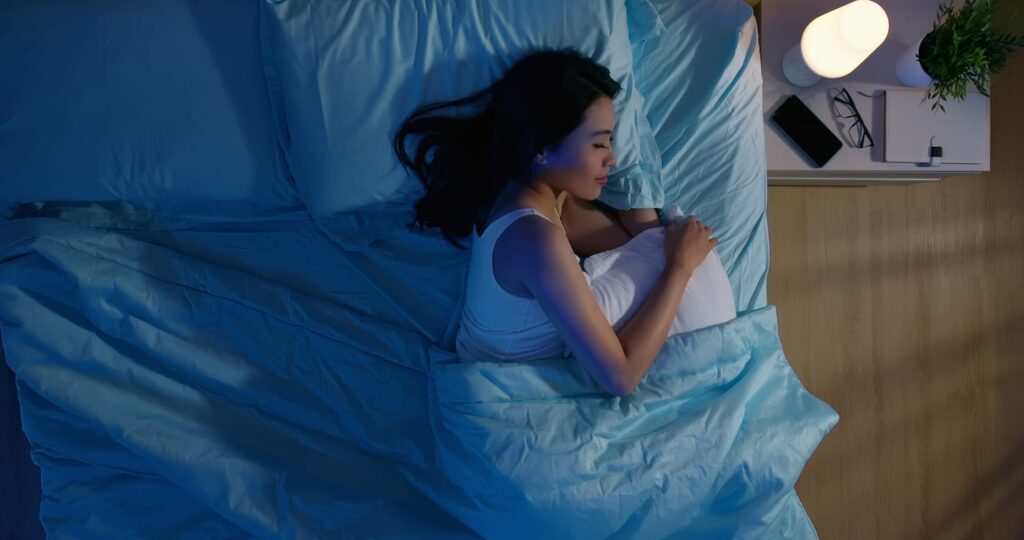Do Women Really Need More Sleep Than Men? Science Unpacks the Truth Behind the Gender Sleep Gap

Do Women Really Need More Sleep Than Men? Science Unpacks the Truth Behind the Gender Sleep Gap
Sleeping is a necessity for all living beings—an essential recharge button for our bodies and brains. But what if we told you that the way men and women sleep isn’t quite the same? It might sound like a bold claim, but it’s not just speculation—this difference is backed by science. New research has taken a deep dive into how gender impacts not only how long we sleep, but how restful that sleep actually is. And the results are more layered than you’d expect.
The Gender Sleep Gap: Not Just About Hours
While we often hear that eight hours is the magic number for a good night’s rest, this rule doesn’t play out equally for everyone. According to several well-designed studies using objective tools like wearable sleep trackers and polysomnography (a clinical test that monitors sleep patterns), women, on average, sleep about 20 minutes longer than men. A large-scale global study from 2022 that tracked the sleep of nearly 70,000 people found this small yet consistent difference across all age groups. For example, among people aged 40–44, women slept around 23 to 29 minutes more than their male counterparts.
Another study using the gold-standard method of polysomnography found a similar gap—women slept approximately 19 minutes longer and spent more time in deep, restorative sleep (23% of the night, versus 14% for men). Perhaps even more intriguing: men’s sleep quality tends to decline with age, but women’s doesn’t show the same sharp drop-off.
Sleeping More, Yet Still Tired?
But here’s where the story gets more complicated. Despite sleeping longer and even spending more time in deep sleep, women consistently report worse sleep quality. In fact, women are about 40% more likely to be diagnosed with insomnia than men.
This mismatch between what’s seen in labs and what women report in everyday life is one of the most puzzling aspects of sleep research. And experts believe there’s no single reason—it’s more about the intersection of multiple factors: biology, mental health, hormones, daily routines, and societal expectations.
The Role of Hormones and Life Stages
Sleep differences between men and women tend to start appearing at puberty, then shift again dramatically during pregnancy and menopause. These transitions are largely driven by fluctuating hormone levels, especially estrogen and progesterone, both of which have been shown to impact sleep quality. For example, many women report trouble sleeping in the days before their period, when hormone levels dip.
Perimenopause, marked by a decline in estrogen, is particularly disruptive to sleep. Many women report waking up at 3 a.m. and struggling to fall back asleep, even if they went to bed early. Add to that the hot flashes and night sweats that often accompany this stage, and restful sleep becomes a major challenge.
Health Conditions That Hit Women Harder
Certain health issues also add to the burden. Thyroid disorders and iron deficiency—both more common in women—are closely linked to poor sleep and persistent fatigue. These conditions often go undiagnosed or under-treated, leaving women feeling exhausted even after a full night’s rest.
Mental health also plays a key role. Women are more likely to experience depression, anxiety, and trauma-related disorders, all of which are known to disrupt sleep. Additionally, rumination and overthinking—cognitive patterns more common in women—make it harder to wind down at night. And the medications used to treat these conditions, such as antidepressants, often impact sleep quality as well.
Sleep Doesn’t Happen in a Vacuum
Even if women technically have the time to sleep, real life rarely gives them the space to truly rest. Societal roles and expectations play a massive part here. Women perform an average of nine more hours of unpaid care work each week than men, according to recent data. This includes everything from managing the household and raising children to providing emotional support and caring for elderly relatives.
That means women are often juggling more during the day, with fewer chances for short breaks, naps, or moments of calm. As a result, their entire recovery and restoration load is placed on their nighttime sleep, an unrealistic expectation that leads to chronic fatigue.
What It All Means
So, do women really need more sleep than men? Yes—but only slightly. Studies suggest a difference of about 20 minutes on average. However, that number is not a prescription. Just like height or shoe size, sleep needs vary from person to person, regardless of gender.
What’s more important than those extra minutes is the context in which women are trying to rest. Biological differences, hormonal shifts, mental health challenges, societal roles, and emotional labor all contribute to a more complex sleep experience.
Sleep may be universal, but clearly, it’s not one-size-fits-all. With hormones, mental load, and society’s expectations weighing heavier on women, it’s no wonder that science says they need about 20 extra minutes of sleep each night.
If you wake a little earlier and notice your partner still asleep, take a moment to pause. According to research, those extra 20 minutes aren’t indulgence—they’re necessary. Close your eyes again, let your body rest, and give yourself the space to recover. Not because you’re behind, but because your body truly needs it.











